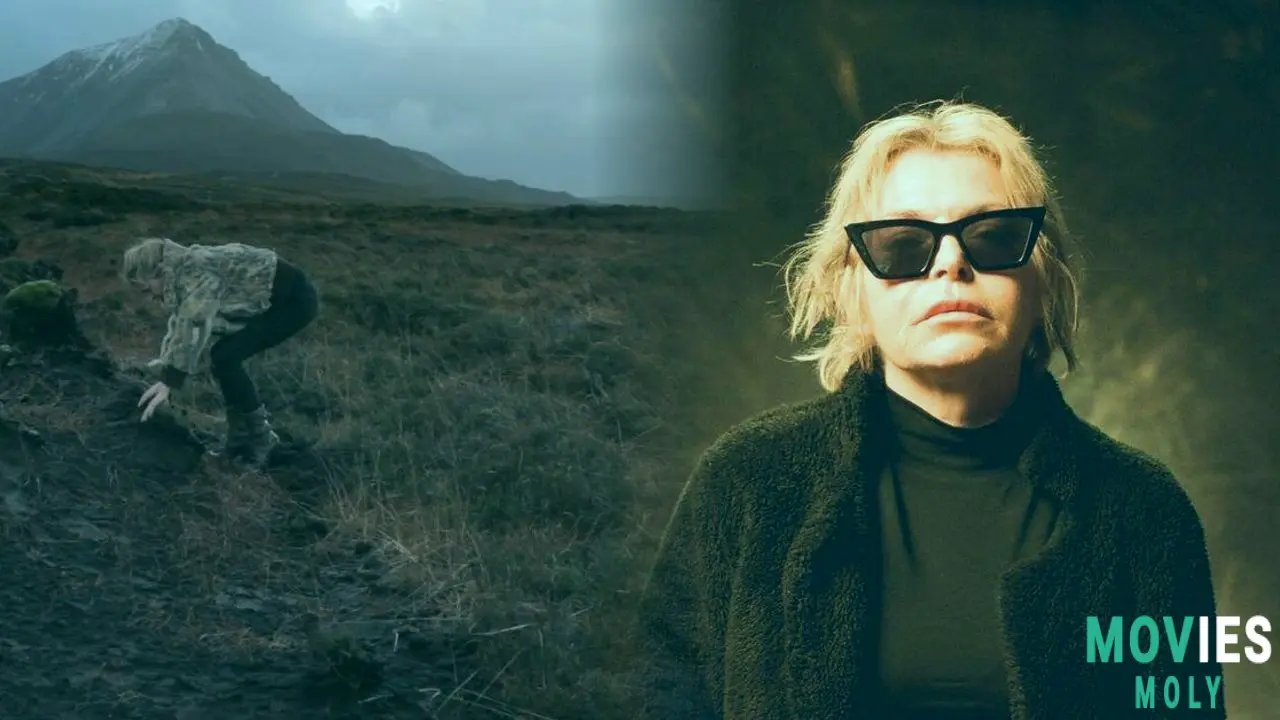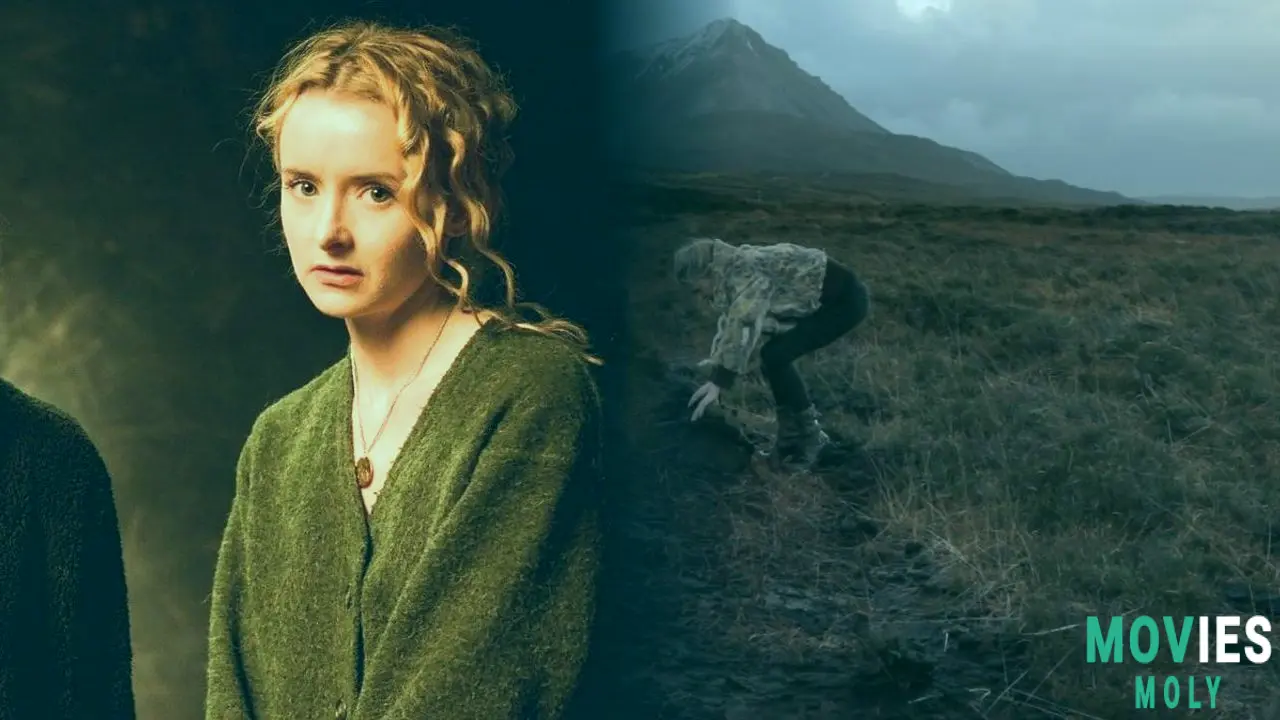Filmmaker Myrid Carten delivers a powerful and intimate debut feature, diving deep into her mother's struggles with mental illness and alcoholism, set against the evocative backdrop of Donegal.
Myrid Carten's debut film is a deeply personal chronicle of her mother's life. A Daring Look at a Fractured Family History and Enduring LoveDonegal-born visual artist and filmmaker Myrid Carten makes her feature-length debut with "A Want in Her," a documentary garnering significant attention and critical acclaim. This deeply personal film chronicles her search for her missing mother, Nuala, and delves into Nuala's long struggle with mental illness and alcoholism. What begins as a search for a person quickly expands into an exploration of complex family dynamics and the lasting impact of addiction.
"A Want in Her" is celebrated for its unflinching honesty and emotional depth. It offers viewers a raw, intimate look at the challenges of loving someone with severe mental health issues and addiction, all while navigating a delicate mother-daughter relationship. This hybrid documentary blends elements of Carten's art practice with traditional filmmaking, creating a formally daring and emotionally provocative piece.
The Heart of the Story: Nuala's Challenging Journey with Addiction and Bipolar Disorder

At the core of "A Want in Her" is Nuala Carten, Myrid's mother. The film poignantly contrasts Nuala's past self with her present reality. We learn that Nuala was once a composed and insightful social worker, even writing a guidance paper for police on handling victims of domestic abuse. This image stands in stark opposition to the film's opening, which finds Myrid spotting her mother on a Belfast street "in a total state" from alcohol, recognizable only by her glamorous high-heeled shoes.
Nuala's battle with both bipolar disorder and alcoholism is central to the narrative. The documentary doesn't shy away from depicting the devastating effects of these conditions, including Nuala's frequent disappearances on binges. However, it also reveals moments of her sharp intellect and empathy when she is sober. This nuanced portrayal prevents her from becoming a mere caricature of dysfunction, instead presenting her as a complex woman caught between past achievements and a "hell-bent self-destruction."
The film further explores the intergenerational nature of addiction, noting that one of Nuala's brothers also struggles with alcoholism. This wider family context, including insights from her uncles Danny and Kevin, living in challenging circumstances themselves, emphasizes the pervasive impact of these issues. It asks a universal question: how can we love and support those struggling with addiction and madness without losing ourselves in the process?
Myrid Carten's Unique Filmmaking Approach: Artistry, Archives, and Authenticity

Myrid Carten's background as a visual artist profoundly shapes "A Want in Her." She approaches the documentary with an archivist's sensibility, utilizing a wealth of personal footage collected since she was a teenager. Nuala herself gave Myrid a camcorder years ago, and Carten instinctively kept everything she filmed.
This archive forms the backbone of the film, presenting a fragmented narrative that amplifies the cyclical nature of addiction and relapse. Viewers encounter various types of footage, from childhood home videos showing classmates acting out dramas of drunken adults, to teenage psychodramas Carten created with her sister, reflecting family turmoil. Perhaps most strikingly, Nuala "effectively plays herself for the camera" in an extraordinary spell, lying like a corpse in a road at night, clad in a rabbit-fur jacket.
Carten employs innovative techniques, such as lip-syncing to recordings of Nuala talking, a device that critics have compared to Clio Barnard's searing examination of generational abuse in "The Arbor." The film's aesthetic also features images of decay, like water droplets distorting the lens and mold on net curtains, which subtly suggest an "unhomely" environment and Myrid's own detachment from her family life. Aerial footage of the family home, combined with disorienting sound, further evokes a feeling of unease.
This hybrid style, blending personal footage with dramatic re-enactments and phone calls, creates an authentic and unsterile look at family distress. Critics have noted the film's echoes of Chantal Akerman's "News From Home," which explores urban loneliness. Similarly, "A Want in Her" functions as a testimony to the often debilitating loneliness experienced in the Irish countryside, giving it a timeless and genuine artistry.
Navigating Ethical Complexities: The Filmmaker's Responsibility and Guilt
Creating a documentary this intimate, particularly when the subject is a family member struggling with severe vulnerabilities, inherently raises ethical questions. "A Want in Her" confronts these provocations directly. The film acknowledges that Nuala, at times homeless, incoherent, or institutionalized, occasionally objects to being filmed. This leads to serious reflection on the power dynamics within documentary filmmaking, especially when the director is also a family member.
Myrid Carten, to her credit, is acutely aware of this tension and grapples with the guilt of recording on-screen. She takes full responsibility for the work, clarifying that while her family members were incredibly generous "participants," they were not "collaborators" in the artistic decision-making. Carten ensured that her family saw the penultimate cut of the film, demonstrating her commitment to integrity and respect for their stories.
The film offers a "personal, radical chronicle of addiction, mental illness and the blurred lines between duty and survival." Carten’s honesty about her own emotional landscape and the complexities of her role as both daughter and director adds another layer of depth, making it a powerful testament to the challenges of documenting deeply personal narratives.
Donegal's Enduring Presence: How Place Becomes a Character in the Film
Beyond the personal narrative, the setting of "A Want in Her" plays a crucial role, almost acting as another character. The film is largely set in the Irish-speaking townland of Gort a' Choirce, or Gortahork, in north Donegal, Ireland. The majestic Errigal Mountains loom large throughout, their presence providing a powerful backdrop to the family's struggles.
Carten emphasizes that "place was massive in the film," describing Donegal as a fascinating region. Its beauty, she explains, lies in its "barrenness and ruggedness," its "unhospitable" and "unforgiving" nature. This challenging environment, paradoxically, can either draw people closer together or lead to an "obsessive" connection with one another.
The local culture is also woven into the fabric of the film, particularly the traditional Donegal question, "cé as tú?", meaning "who are you from?", rather than "where are you from?" This query highlights the deep communal ties and the importance of family history in the region, a concept that resonates strongly with Carten's own archival project.
For Myrid, the setting of her childhood and her family's long history provides a vital sense of "perspective and scale." Gazing at the ancient mountains, she explains, makes one realize "how short our lives are," a significant theme in the film. The landscape evokes a sense of both profound connection and an "indifference to your existence," reflecting the often isolating experience of living in the Irish countryside.
Musical Threads, Future Ambitions, and Why "A Want in Her" Resonates Deeply
Myrid Carten skillfully uses music to enhance the emotional impact of "A Want in Her." Towards the film's conclusion, two powerful musical pieces underscore the narrative: Lankum's folk rendition of "The Wild Rover" and Fontaines D.C.'s "A Hero's Death." Carten explains that the Fontaines D.C. song resonated deeply as one of her mother's siblings passed away around the time it was released, making it a fitting, poignant choice for the ending. Both Irish bands, she notes, sing about Irish subjects, further rooting the film in its cultural context.
The documentary is a "testimony to breaking free of generational trauma" and the often overlooked repercussions of such struggles. It is deeply personal, yet its themes of addiction, mental illness, family love, and resilience are universally resonant. It asks audiences to reflect on their own relationships and experiences, without feeling like an "unabashed PSA."
Looking ahead, Myrid Carten has expressed her ultimate goal of moving into drama filmmaking, potentially with hybrid works that incorporate fictive elements. She admires actors such as Cillian Murphy, Paul Mescal, Saoirse Ronan, and Michael Fassbender, highlighting her ambition to explore the "intimacy of fiction." Given the critical success and profound impact of "A Want in Her," her future projects will undoubtedly be keenly anticipated.
Awards, Release, and Why This Film is Essential Viewing"A Want in Her" has already garnered significant acclaim on the festival circuit. It premiered at the prestigious International Documentary Festival Amsterdam (IDFA) and went on to win both the Audience Award and the Documentary Award at the Dublin International Film Festival (DIFF). These accolades underscore its powerful narrative and Carten's compelling direction.
The film, with a running time of 1 hour and 21 minutes and a 15A certification, is set for a cinema release across Ireland and the UK starting Friday, October 10, 2025. Local screenings will include the Century Cinema in Letterkenny, allowing audiences in Donegal to experience this deeply personal story on the big screen.
Produced by Tadhg O'Sullivan, Róisin Geraghty, Kat Mansoor, and Eline van Wees, with backing from Fís Éireann/Screen Ireland and the BFI Doc Society Fund with National Lottery Funding, "A Want in Her" is described by critics as a "staggering debut" and "arguably one of the best Irish films of the decade." It offers an intimate, surprising, and often darkly funny insight into the trials of loving someone who struggles with addiction and madness. For anyone who has been close to an alcoholic or someone with mental health issues, this powerful documentary offers a deeply relatable and ultimately hopeful perspective on duty, survival, and finding a sense of closure.
The rugged beauty of Donegal provides a significant backdrop to the deeply personal story of "A Want in Her."





